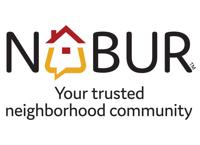My late father Wilfred for decades shared his love of North Central Washington history with the readers of The Wenatchee World through his Talking It Over column. He was a voracious reader and had an uncanny ability to integrate knowledge and pass along insights.
There is an emerging local history project that he would be very excited about — a bilingual history of Wenatchee and East Wenatchee that has been written by local history buff Chris Rader in collaboration with retired veterinarian Carin Smith.
Histories that have been written about the valley have for the most part missed the influence and involvement of Native Americans, Asians and Latinos. And there are no histories in Spanish, despite the fact that more than 30 percent of our residents are Latino. This fact was raised by civic volunteer Teresa Zepeda in a conversation with Smith. She was eager to learn more about the valley and wanted to know if there were any resources in Spanish.
Smith, who has taught herself Spanish over the years by participating in conversation groups and frequently traveling to Central America, thought Rader would be the perfect person to take on such a book-writing challenge.
For the last 14 years or so, Rader has produced the Confluence history magazine for the Wenatchee Valley Museum and Cultural Center. She’s a terrific writer who makes history approachable and looks for insights and narrative threads to help readers make sense of the events and trends.
What intrigued Rader and Smith about this project was the opportunity to update the historical record of our valley, make it accessible to those who read Spanish, and tell a more richly diverse story about the contributions of the Latinx community in the economic, cultural and civic life here.
A year and a half ago, they launched this project and now, 36,000 words later, their project is headed down the home stretch. The book is titled: “Land of Plenty: A History of Wenatchee, in English and Spanish.”
Their nonprofit fiscal sponsor is the Wenatchee Valley Museum and they’ve gotten letters of recommendation from Alma Chacon at CAFÉ (Community for the Advancement of Family Education), Wenatchee Valley College and NCW Libraries.
Now Smith and Rader need our support to help make this project happen. The hard work is done, but now they need to pay for a professional translation, cover the cost of printing and compensate Rader for the countless hours she is investing in the writing, not to mention the design work that will fall on her shoulders.
They’ve started a Go Fund Me page, http://wwrld.us/history with a goal of raising $14,000. Raising money for projects is challenging at this time because many of the usual supporters are funding COVID-19 community projects.
This is one of those efforts that deserves our encouragement and financial support. There is a growing recognition that we are one community and that immigrants have made enormous contributions here. What a positive message it sends that there will be a bilingual history book available.
With the help of the museum’s resources, some 90 photographs will be included in the book.
It’s important to describe the scope of this book. Rader focuses on four themes: People (Indigenous Americans, Asians, Latinos and the first Caucasians), Agriculture, Transportation and Recreation.
By including the stories of Native Americans, Asians and Latinos, Rader said, “I’m hoping everyone will feel honored and received and part of our community.” Rader and Smith are keenly interested in building bridges and finding ways to unite the community.
“It is our hope that adults and teenagers who speak English and/or Spanish will find this book interesting,” according to their introduction on the GoFundMe site. “Many intriguing characters have made Wenatchee and East Wenatchee their home, over the years, and we hope you will enjoy learning how they guided the development of our region,” they wrote.
What makes community investment in this project essential is that the market for such a history is small and it is unlikely that book sales will cover the cost of publication.
For those of us who are anxious to highlight the best of our communities and ways in which cooperation and collaboration have been an essential aspect of our history, this book will be something to treasure, learn from and celebrate.
Rufus Woods is the publisher emeritus of The Wenatchee World. He may be reached at [email protected] or 509-665-1162.


